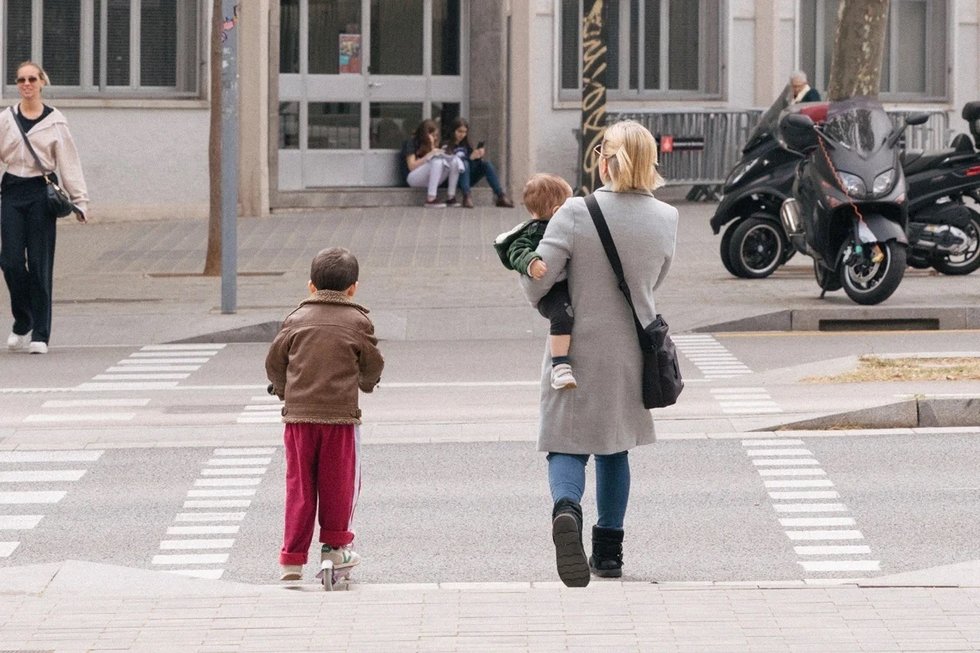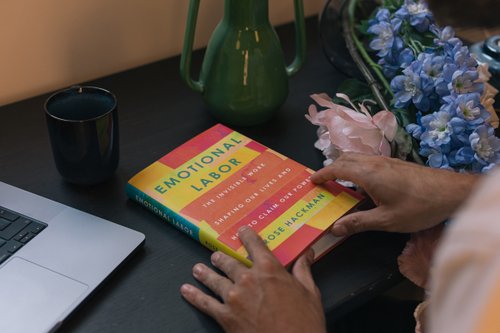Parents hitting the wall: The most overlooked form of burnout
Jun 24, 2022
5 mins


Beth Braverman is a freelance journalist based in New York
Jennifer Jacquet, 41, knew she was going to have to make a change in her life. Lately, she’d found herself losing patience with her 9-year-old son and her wife more often than usual. Both Jacquet and her wife were working full-time jobs while also taking care of their son and her wife’s sick father.
Jacquet’s position as a preschool administrative assistant required her to be onsite for eight hours per day, and many of the other tasks around the house were starting to go undone as the couple also struggled to fulfill their caregiving duties.
“You’re just going through the motions of the routines and getting the food on the table and getting bedtime done,” says the Connecticut resident. You’re not fully there, and you don’t have your normal level of happiness or patience because everything else is on your mind at the same time.”
Ultimately, Jacquet accepted a new job working with a nonprofit, which allowed her more flexibility and to work from home more often. In only a month at her new job, Jacquet says she can feel the difference.
“Being able to be more engaged with my son and at my son’s school helped with my guilt,” she says. “And being able to actually recharge on weekends has been so helpful to my mental health. I feel like I was just grumpy sometimes before and tired. I don’t feel that anymore.”
Jacquet was lucky that she could make a career switch that helped her fight her feelings of parental burnout. But her experience with such stress is one that’s all too common among parents today.
“You’re just going through the motions of the routines and getting the food on the table.”
While children were home from school during the pandemic lockdowns, parental burnout received more attention, but experts say that the lockdowns only exacerbated an existing problem — one that persists now that most children are back in the classroom.
A May report from researchers at Ohio State University found that a full two-thirds of parents reported being burned out, with higher rates associated with female parents. Parents with two or three children were more likely to report burnout than those raising an only child, and female parents were more likely than men to struggle with burnout.
“The pandemic has changed so much without changing a lot at the same time,” says Rebecca Gale, a reporting fellow at the Better Life Lab at New America. “There was momentum in federal paid family leave and for children care, but that has not moved forward. However, we are seeing significant changes in workplaces.”
For example, working remotely no longer automatically places a worker on the “Mommy track,” Gale says.
The Ohio State report, which focused on working parents (although parental burnout can impact parents who don’t work as well), also found a correlation between parental burnout and depression, anxiety, and alcohol consumption, as well as higher rates of mental health challenges for their children.
“We really have a mental health pandemic inside of the Covid-19 pandemic right now,” says Bernadette Melnyk, dean of Ohio State’s nursing program and author of the report. “People are truly exhausted between the pandemic and the racial and political tensions we have experienced. Recovery is going to take quite some time.”
While burnout is not a clinical diagnosis, workplace burnout is a syndrome recognized by the World Health Organization. Unlike people with workplace burnout, however, those experiencing parental burnout don’t have the opportunity to change jobs or take a vacation.
“We really have a mental health pandemic inside of the Covid-19 pandemic right now.”
People experiencing workplace burnout and those with parental burnout share three common feelings, says Paula Davis, author of Beating Burnout at Work and a single parent herself:
- Exhaustion: Previous methods of recharging no longer work.
- Cynicism: You’re bothered by people and things that previously did not bother you.
- Inefficacy: You feel disengaged and that your actions are not making a difference.
Concerned you or a loved one might be dealing with parental burnout? Take the following steps:
Recognize the signs
While it may be easy to overlook mental, physical, and emotional exhaustion as simply part or parenthood, experts say that such feelings rise to parental burnout when they feel completely overwhelming. This can lead to other symptoms, such as irritability, forgetfulness, and depression.
While all parents feel that way occasionally, you may be experiencing burnout if your parenting stress is making you unable to complete your daily tasks or impacting your relationships with those that you love.
Melnyk defines parental burnout as “the state of emotional and physical exhaustion that stems from the parenting role, and which, at time, makes you feel detached from your children.”
Make time for yourself
This is easier said than done for most parents. Davis suggests that parents find pockets of time to destress by writing that time into your calendar, rather than waiting for your schedule to organically provide openings. That may require asking a partner or friend for help with childcare, or otherwise rearranging your planning to allow for the downtime you need.
Celebrate small successes
When you’re feeling burnt out, it can be easy to focus on all the difficulties of parenthood. Take some time to recognize all the times that you’re succeeding as a parent – whether your baby has begun sleeping through the night or your high schooler just made the honor role.
Davis suggests talking to yourself as you’d talk to a friend who confided in you that they’re struggling. That’s because we tend to be much more supportive and encouraging of others than ourselves. Also, lean into those activities that you do throughout the day that do give you energy and motivation.
“It could be at PTO meetings, or it could be coloring with your kids,” she says. “It could be having a conversation with a neighbor or just taking a break when you need to.”
Ask for help
Parenting is a job that no one can do alone. A study of parental burnout across more than 40 countries found that the countries with the highest levels of burnout were those with more individualistic cultures, where parents were less likely to ask for support.
If you have a partner or co-parent, talk to them about your burnout and see whether you can shift some responsibilities to ease the stress. Be honest about your feelings and stress levels. If you’re a solo parent, tap into your network of friends, family members, babysitter, and other parents to see whether organizing a carpool or rotating play date could provide you with a needed break.
For some parents, parental burnout and the associated anxiety, depression, or other symptoms requires professional assistance. Connecting with a therapist experienced in working with parents can help you find the steps to move forward.
Give yourself grace.
Remember that parenting is already a difficult job, and in many ways our society does little to ease the burden. Childcare challenges and insufficient family leave policies contribute to many of the feelings of burnout experienced by parents.
“We put so much pressure on parents to find all of these individual solutions to what are very much collective problems,” Gale says. “We don’t have the basic systems and supports in place to allow all parents from the beginning to set themselves up for success.”
Companies could do more as well, Gale says, using tools like 360 reviews and exit interviews to determine areas where they could be supportive to working parents.
Parenting is a stressful job — even for those who aren’t experiencing burnout. Instead of beating yourself up for individual incidents or events, recognize what happened, and move on.
Photo: Welcome to the Jungle
Follow Welcome to the Jungle on Facebook on LinkedIn and on Instagram and subscribe to our newsletter to get our latest articles every day!

More inspiration: Mental health

‘We need each other’: Monika Jiang on combating loneliness in hybrid work
Hybrid work offers flexibility but can leave us feeling disconnected. Monika Jiang explores how we can rebuild workplace connections.
Dec 19, 2024

Struggling at work? Here are 3 steps to rebuilding your self-esteem
Low on confidence? Learn how reflection, recharging, and refocusing can help you rebuild self-esteem and thrive professionally.
Nov 27, 2024

10 ways to beat the Sunday Scaries
Even people who love their jobs can experience the Sunday Scaries. Psychologist Karen Doll offers several strategies to help manage and overcome it.
Sep 12, 2024

Unpacking the burden of emotional labor
Rose Hackman’s "Emotional Labor" reveals how managing emotions impacts everyone, especially women and minorities.
Aug 08, 2024

Is financial anxiety harming your productivity?
Feeling overwhelmed by financial anxiety? You're not alone. Discover practical steps and expert advice to regain control of your work-life balance.
Jul 31, 2024
The newsletter that does the job
Want to keep up with the latest articles? Twice a week you can receive stories, jobs, and tips in your inbox.

Looking for your next job?
Over 200,000 people have found a job with Welcome to the Jungle.
Explore jobs